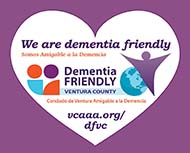
Getting the flu is never an enjoyable experience regardless of age, but due to the risks to the elderly, senior flu prevention is particularly important. According to CDC’s Hospitalization Surveillance Network (FluSurv-NET), in the months between October 1, 2015 and February 20, 2016, there were 594 confirmed flu-associated hospitalizations reported with the highest rate of hospitalization being seniors age 65 and over. In recent years it is estimated that 80%-90% of flu related deaths were that of seniors. The County of Los Angeles’ Influenza Watch, recently reported that the 2015-2016 flu is circulating at elevated levels with the number of positive cases peaking later this season than it did in previous years. With the surge in cases of the flu, it’s important to take steps to prevent the spread. It is especially vital for seniors in homecare as the elderly are considered high risk and more vulnerable to developing additional complications from the flu.
Here are a few ways to help prevent the spread the flu and keep homecare patients safe.
Flu Vaccine
The best method of preventing the flu is to receive the flu vaccination yearly. The CDC is reporting that this year’s flu vaccine is one of the most effective in years with nearly 60% effectiveness. Seniors and all caregivers in the homecare setting should be vaccinated to reduce the chance of contracting and spreading the virus. According to the U.S. Department of Health and Human Services, seniors covered by Medicare Part B can receive a flu shot once a year with no deductible or co-insurance as long as the vaccination is administered by a Medicare provider. And while we’re well into the flu season, it’s not too late to get vaccinated.
Good Hygiene
Practicing good hygiene is especially important during flu season to help avoid contracting and spreading the flu. Since germs are most commonly spread by “respiratory droplets”, coughs and sneezes should be covered by a tissue or aimed into the crook of the elbow. Hands should be washed frequently, especially after coughing and sneezing or touching items in common areas (door knobs, shopping carts, stair rails etc). Hands should be washed with soap and warm water for at least 20 seconds. If soap and water are not available, an alcohol based hand sanitizer should be used.
Avoid Crowded Areas
There’s bound to sick people around in public or crowded areas. These places can often become a breeding ground for germs and put seniors at a higher risk of contracting the flu. While family gatherings or social situations can’t always be avoided, very crowded situations may not be ideal for seniors this time of year. The best bet is to try to avoid these situations altogether to help prevent seniors from falling ill. If that’s not a possibility and the patient needs to leave the homecare setting, they should carry hand sanitizer and even wear a mask for protection from airborne germs.
For questions or to learn more about Assisted’s Home Healthcare and the services we offer, call 800-949-6555 or visit us at www.assisted1.com.







